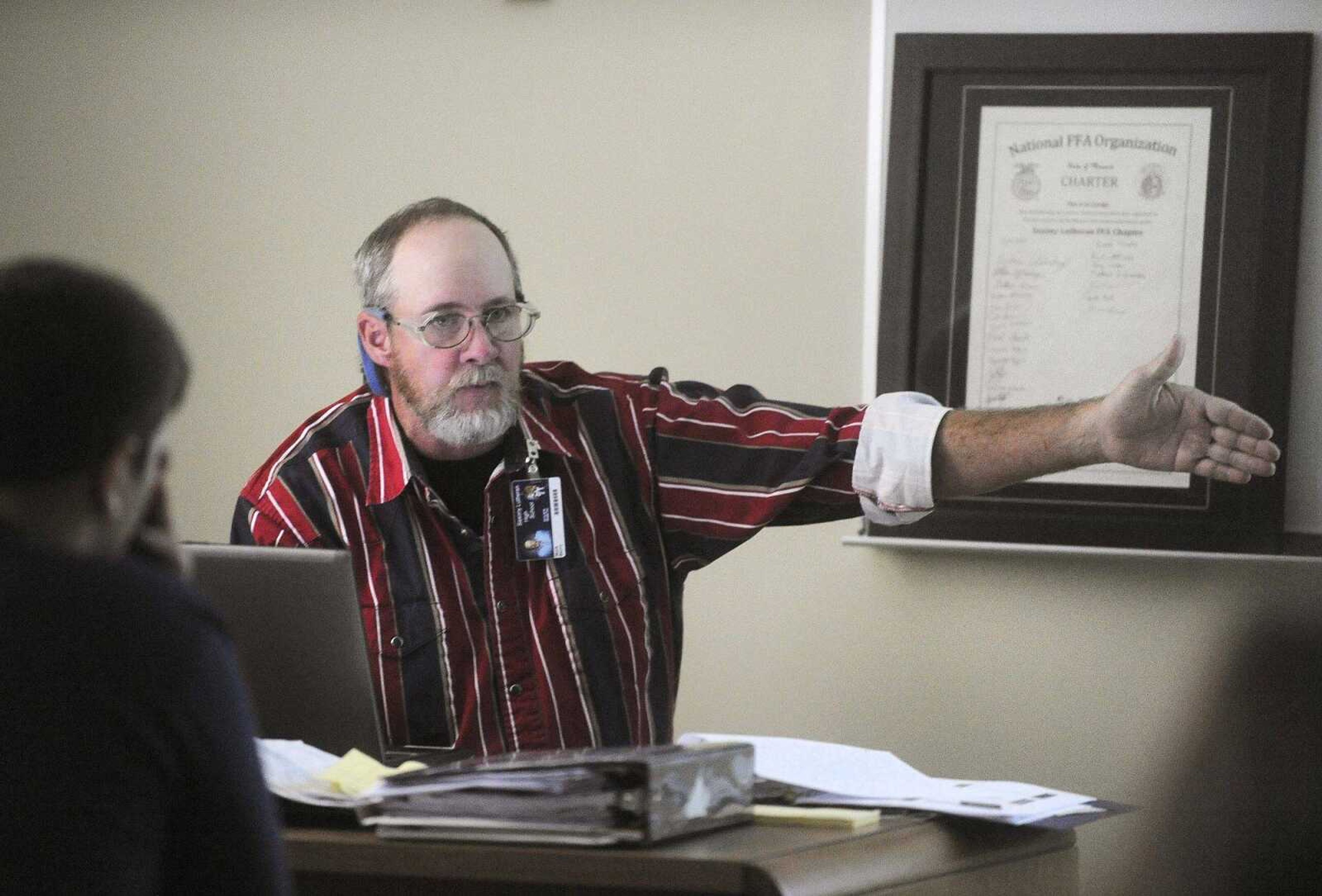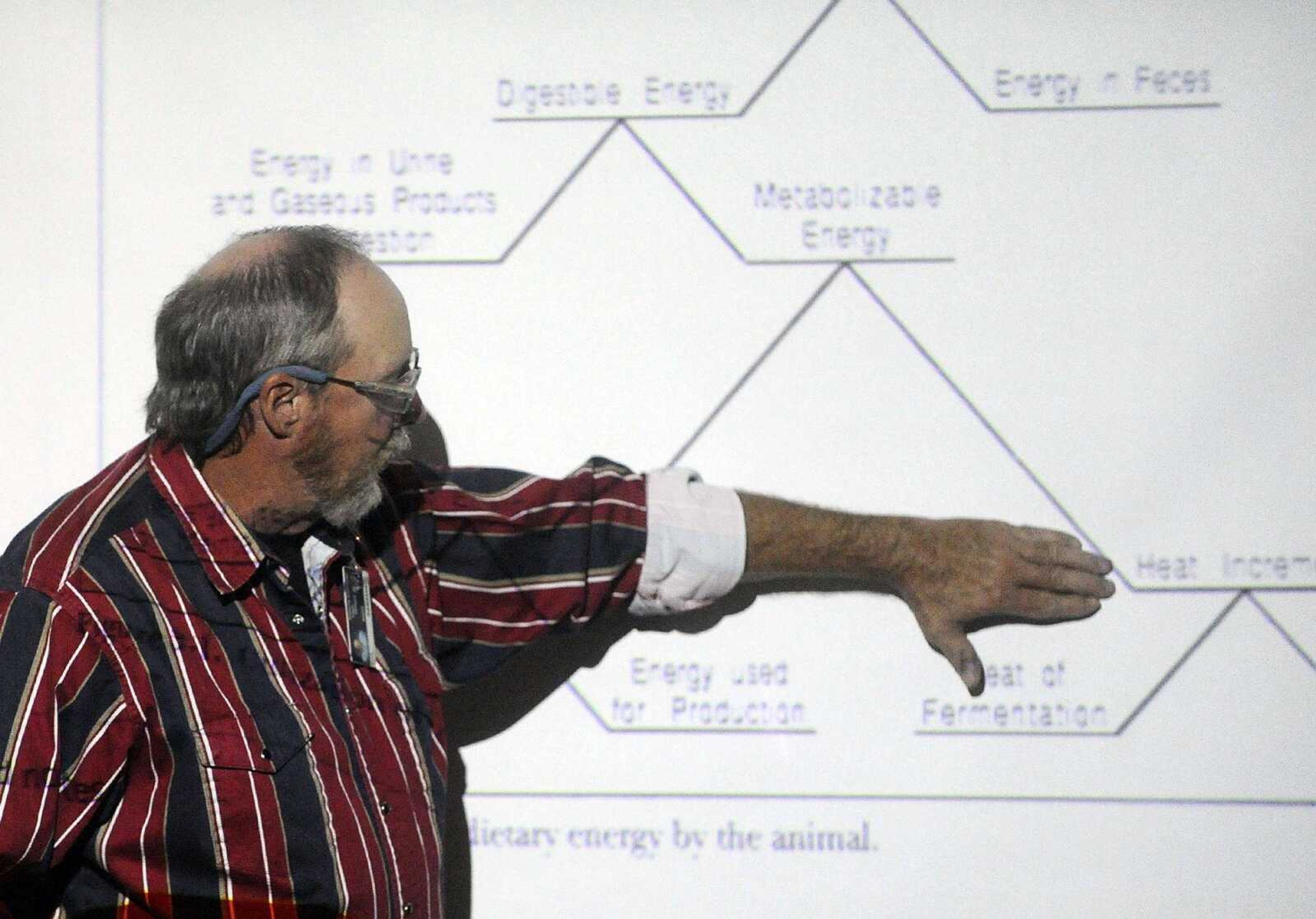During an agricultural-science class at Saxony Lutheran High School, teacher Mark Berry made a point about farm safety by giving students a new pair of jeans and telling them to rip the material by hand.
If they succeeded, he said, he would buy them lunch. But the only meal Berry had to buy that day was his own.
The example was used to show students if their jeans were caught in a piece of farm equipment, such as a power take-off shaft, they would be unable to rip the jeans to get free.
"Farming is an extremely dangerous occupation," Berry said. "One of the big focuses with this class is to put safety foremost above anything else we do."
Safety is one of many aspects of agriculture the students are learning as part of the school's FFA program, which is in its second year.

Berry began leading the program in August after its first teacher had to leave for family health reasons. Berry's job is to build on the success of the former teacher, he said, and there still is a lot he plans to accomplish moving forward.
The school attracts a diverse group of students from the region, from those who grew up on flat ground in southern Missouri, where they focus on row crops, to those who raise livestock and farm rolling hills.
His goal, he said, is to build a curriculum that meets the needs of all the students, ensuring they're college- and career-ready.
The school added the FFA program last year after receiving feedback from communities the lack of a program was a reason for potential students to choose another school.
Berry is part time and teaches two courses, Ag Science I and II, but he hopes to add classes and become full time. The FFA program is an extracurricular activity, but students receive graduation credit for the classes.
First-year students delve into animal science during Ag Science I, as well as the basics of agriculture mechanics and FFA. During the second-level class, they build on the basics of FFA and explore plant science and take a more in-depth look at agriculture-mechanics skills.
The students learn in the classroom and have hands-on experiences, Berry said, such as tagging calves, giving shots and banding bulls.
Berry said other future goals for the program include constructing an agricultural education building to provide students with more hands-on tools and experiences.
"The focus is to educate, but also make it fun," Berry said. "Because if they're interested, they're going to learn more."
The students also compete in FFA competitions, and several attended the National FFA Convention in Louisville, Kentucky, last week, where they gathered with thousands of other students.
Senior Sarah Wichern, who attended the national convention, said she plans to study business and marketing, and being involved in FFA has helped her build leadership skills.
"It's really good to be in FFA, because they teach you how to speak (to groups)," she said. "Even if it's not particularly ag-related that you're going into, you can still have that foundation."
Eleventh-grader Andrew Aufdenberg, president of the school's FFA chapter, helped establish the program at Saxony. Aufdenberg said the school had an agriculture club, but the FFA organization presented more opportunities.
Aufdenberg said he learns a lot from working on his family's farm, but the classroom environment helps expand his knowledge about other areas of agriculture. Overall, he said, it's been a huge benefit to the school.
"You go to other schools, and they have bigger chapters, but being a small school, everybody in the chapter seems to be really involved," he said. "We might not have as many people total, but everybody is really involved in it and really wants to make it a good chapter and get the most they can out of it."
klamb@semissourian.com
(573) 388-3639
Pertinent address:
2004 Saxony Drive, Jackson, Mo.
Connect with the Southeast Missourian Newsroom:
For corrections to this story or other insights for the editor, click here. To submit a letter to the editor, click here. To learn about the Southeast Missourian’s AI Policy, click here.







